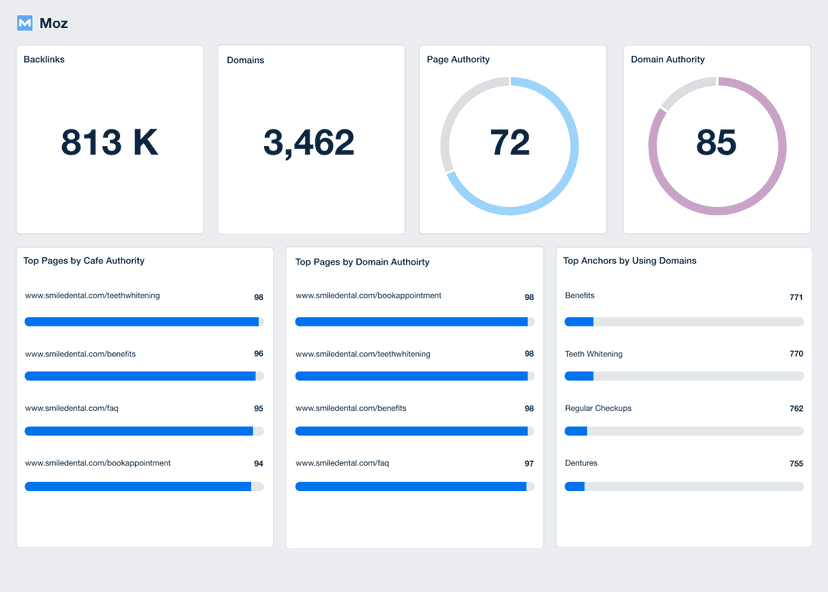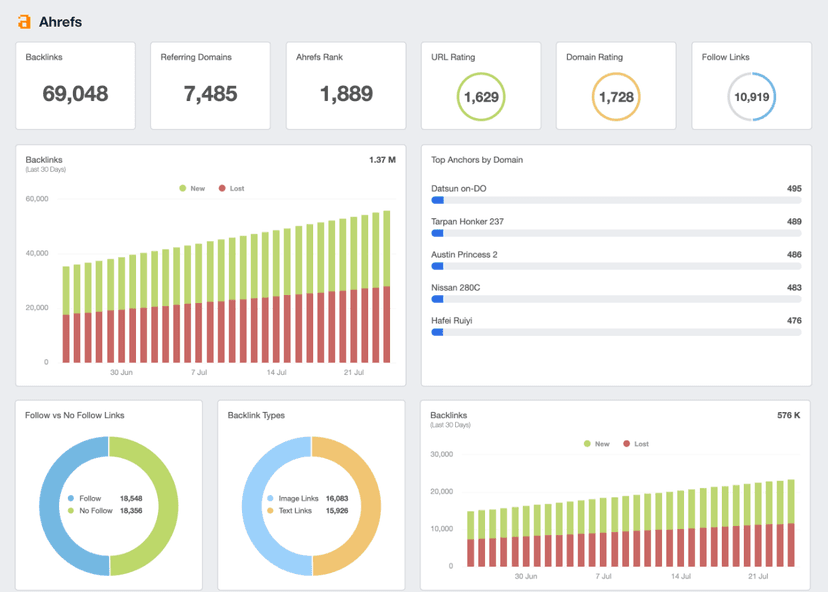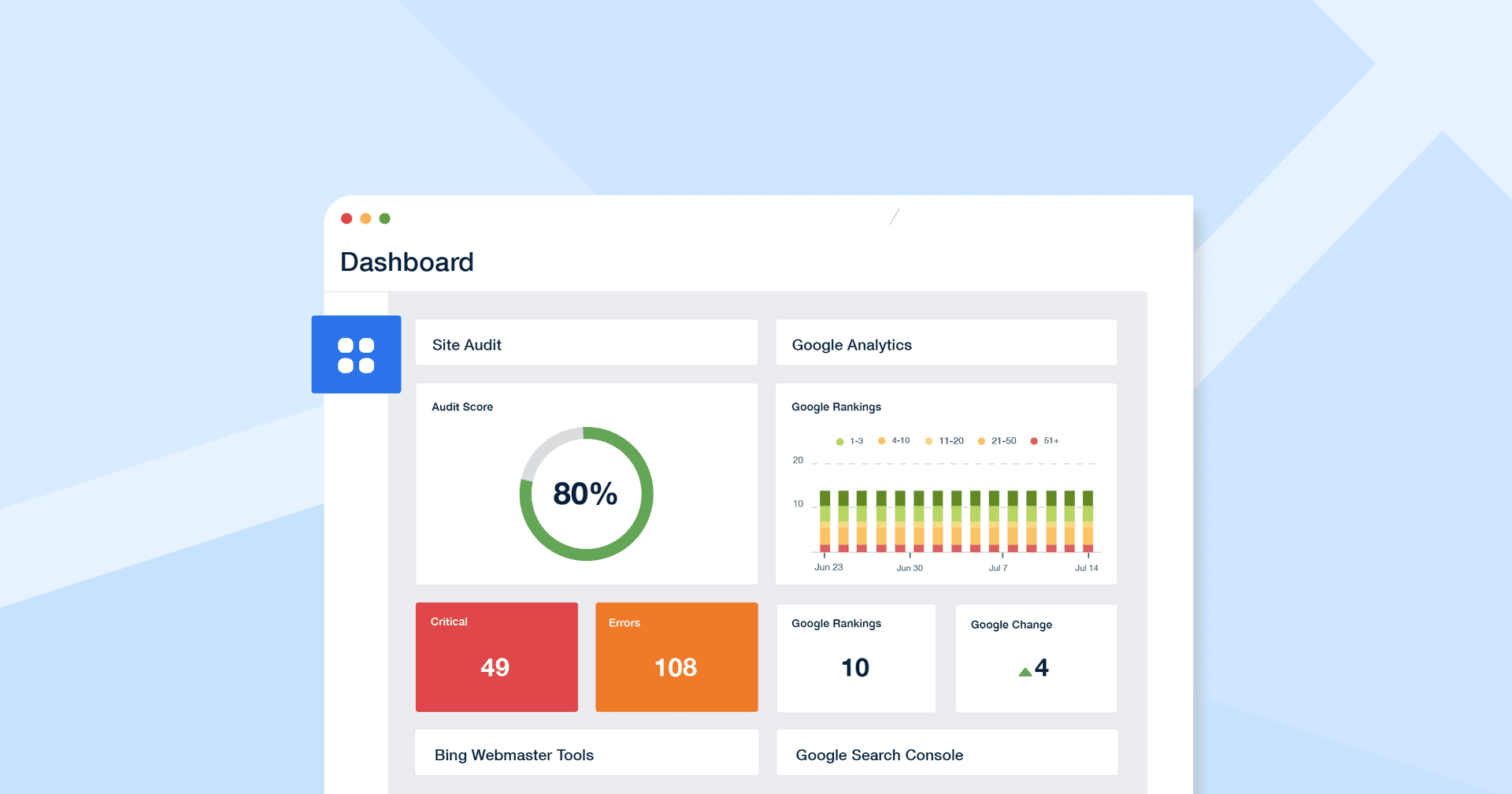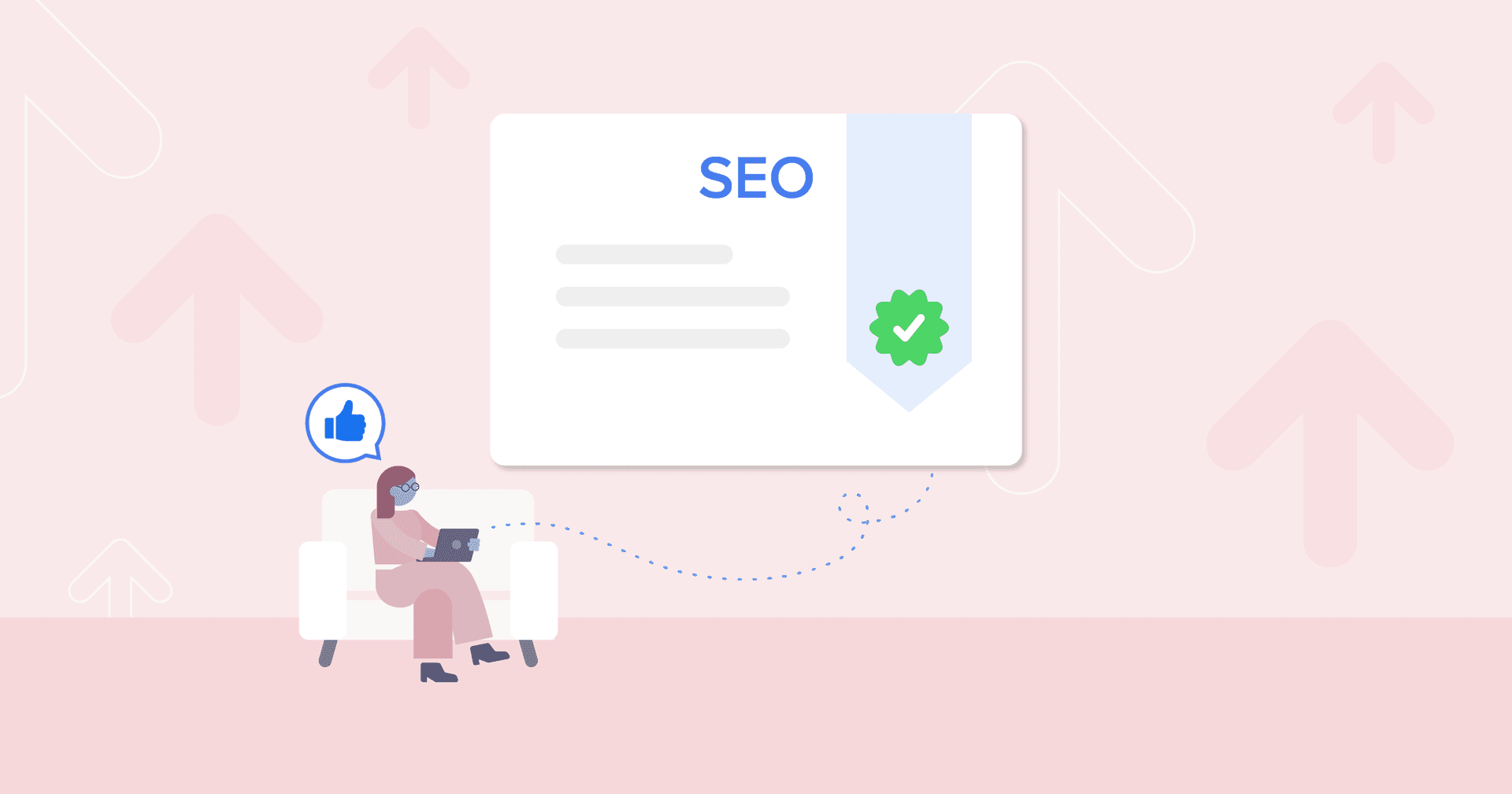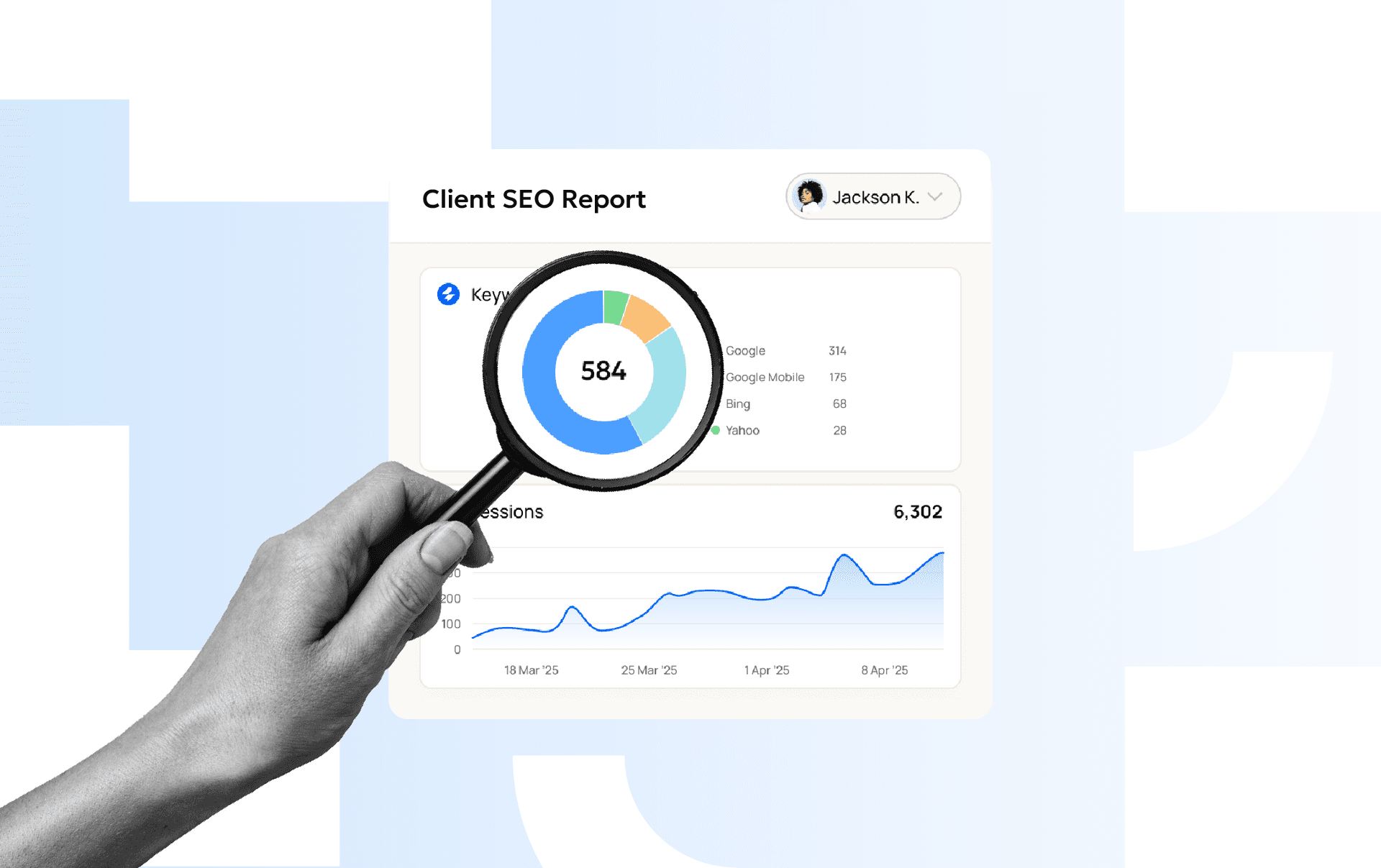Page Authority (PA)
Link Targets
Use Page Authority to identify valuable pages to source inbound links.
Competitor Benchmarks
Compare against rival pages for strategic insights.
Client Reports
Highlight authority improvements to underscore agency-generated SEO value.
Content Focus
Prioritize updates on pages with moderate but promising authority scores.
Why Page Authority Is Important
High-authority pages generally equate to better visibility on search engine results pages (SERPs), making it an indispensable metric in optimization strategies. It provides a snapshot of a page's overall estimated authority and relevance, helping determine its potential to rank well.
Although a high Page Authority score does not guarantee a specific web page will rank well, it is an excellent indicator of potential.
This authority score also aids in identifying the strengths and weaknesses of a specific page, enabling agencies to optimize accordingly. A keen focus on improving this authority metric often makes the difference between being on page one or two in search engines and directly affecting website traffic and conversion rates.
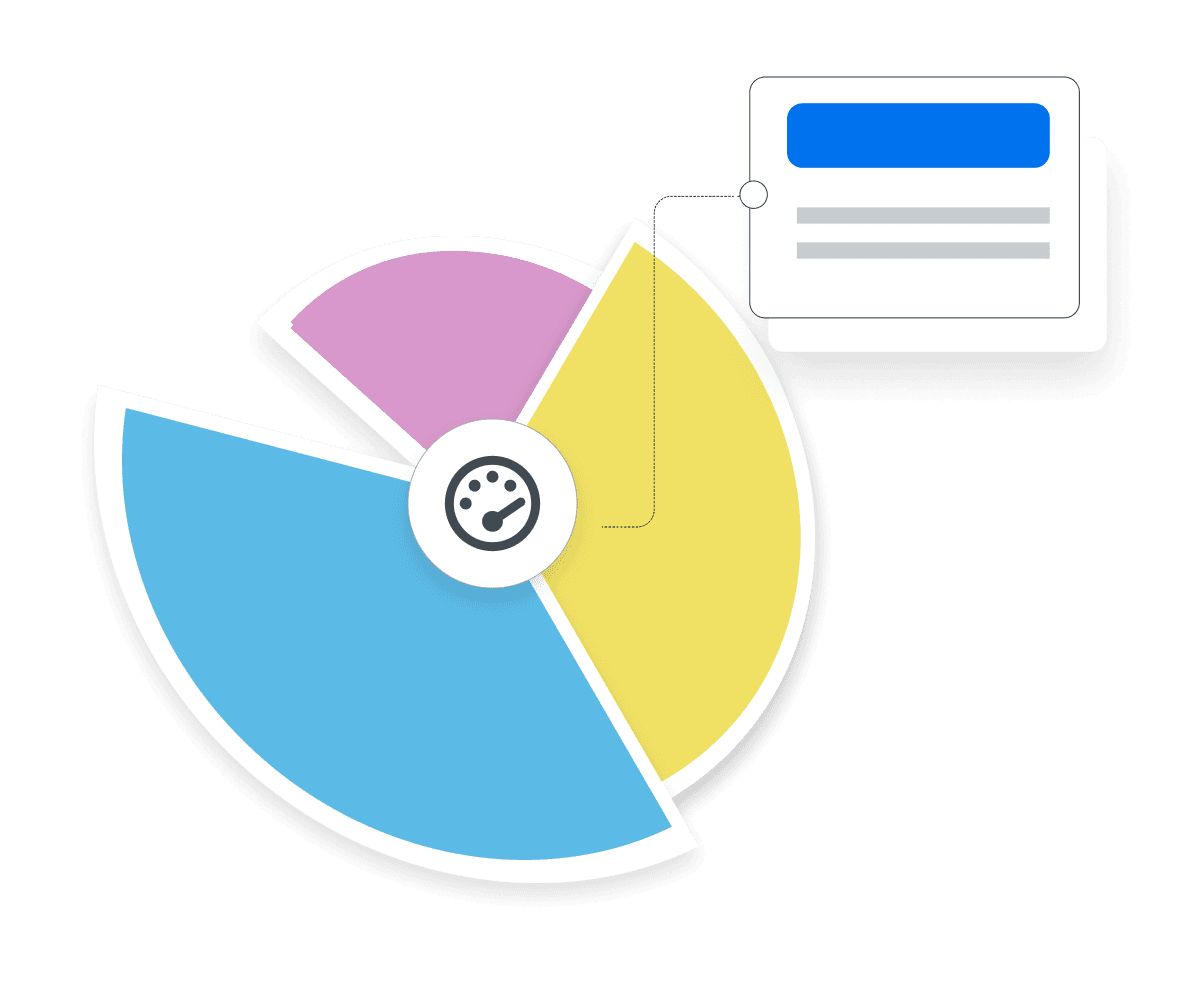
Stop Wasting Time on Manual Reports... Get SEO Insights Faster With AgencyAnalytics
How Page Authority Relates To Other KPIs
Page Authority is tightly intertwined with Domain Authority, as both KPIs aim to predict ranking potential on search engine result pages. While Page Authority zeroes in on the possibility of an individual page, Domain Authority gives a broad view of the website's domain rating and ranking ability. Elevating one tends to uplift the other, creating a mutually beneficial relationship.
Another interlinked KPI is Keyword Ranking. A page with high Page Authority often ranks well for its targeted keywords. However, exceptional keyword ranking also boosts Page Authority, feeding into each other's success. Likewise, Organic Traffic is a KPI that often sees a positive uptick when Page Authority improves. Higher rankings generally bring more organic visitors; increased traffic helps validate and boost a page's authority score. The number and quality of backlinks to a page significantly influence its Page Authority, often serving as a pivotal factor in its scoring algorithm.
Keep in mind that a page needs organic traffic to elevate its Page Authority score but also requires a high Page Authority score to attract more traffic, creating a bit of a chicken-and-egg scenario.
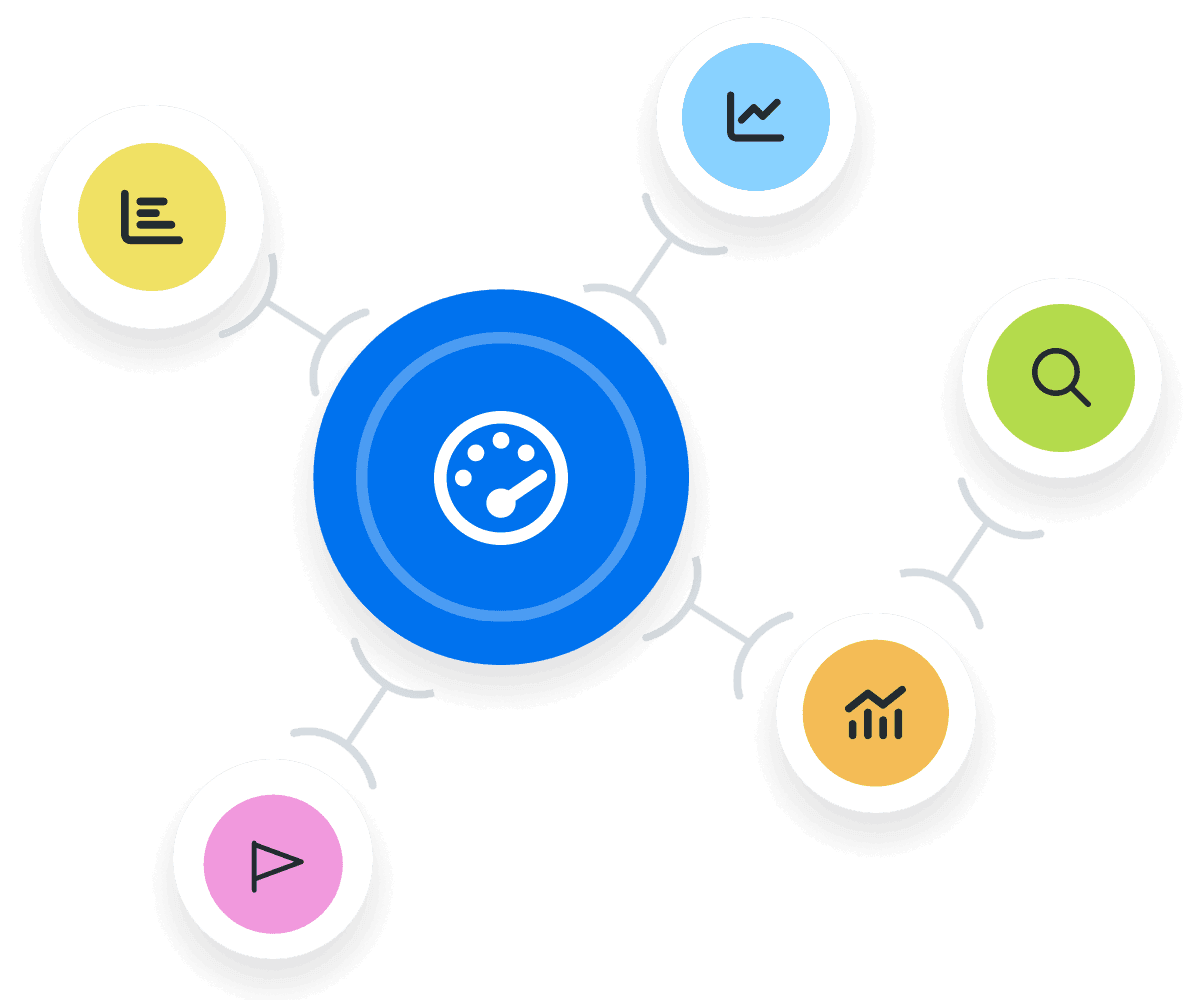
You can quickly tank your authority score if you build poor-quality links. Focus on high quality to add value.
How To Measure Page Authority
Measuring Page Authority is straightforward with the use of page authority checker tools like Semrush. Authority metrics are easily accessed within the platform, offering insights into a web page's standing. While domain authority measures the credibility of an entire website, these specific tools zoom in on the authority scored for individual web pages and provide insights into the ranking factors driving that score.
The PA score is typically calculated based in part on the link profile and the number of reputable sites linking to the page. By frequently checking these authority measures, agencies assess the efficacy of SEO initiatives and recalibrate strategies as needed.
What Is a Good Page Authority?
The best quality score is higher than a competitor's page. However, a good Page Authority score generally hovers around 50-70. Higher scores indicate a substantial likelihood of ranking well in search engine results.
What Is a Bad Page Authority?
Scores below 20 are often considered low and suggest that a page may need help to rank. Such pages usually require optimization and high-quality backlinks to improve their standings.
How To Set Page Authority Goals
If standard benchmarks or competitor Page Authority scores aren't clear-cut, an agency should look at historical data to set its targets. Reviewing past Page Authority scores alongside achieved KPIs like SERP ranking, organic traffic, and conversion rates makes it easier to back-calculate the required Page Authority to increase keyword rankings, improve organic traffic, and hit revenue targets.
To dig deeper, consider breaking down authority scores by page type, including product pages, blogs, or landing pages. Examine how scores fluctuate with changes in content or backlink profile and compare these against other KPIs like engagement or click-through rates. This kind of granular analysis allows for targeted optimization strategies.
Median Moz Page Authority Score for SMB Campaigns
The median Moz Page Authority score is currently 31, based on performance benchmarks from over {{campaign-count}} campaigns managed by {{customer-count}}+ marketing agencies. This value represents the typical range for SMBs, where page authority often depends on the depth of content, the quality of backlinks, and competitive dynamics within specific industries.
Analyzing a Page Authority score in relation to industry benchmarks highlights opportunities to enhance content relevance, secure authoritative backlinks, and boost visibility for high-value pages.
Explore detailed performance benchmarks to see how campaigns compare. Get started with a 14-day free trial.
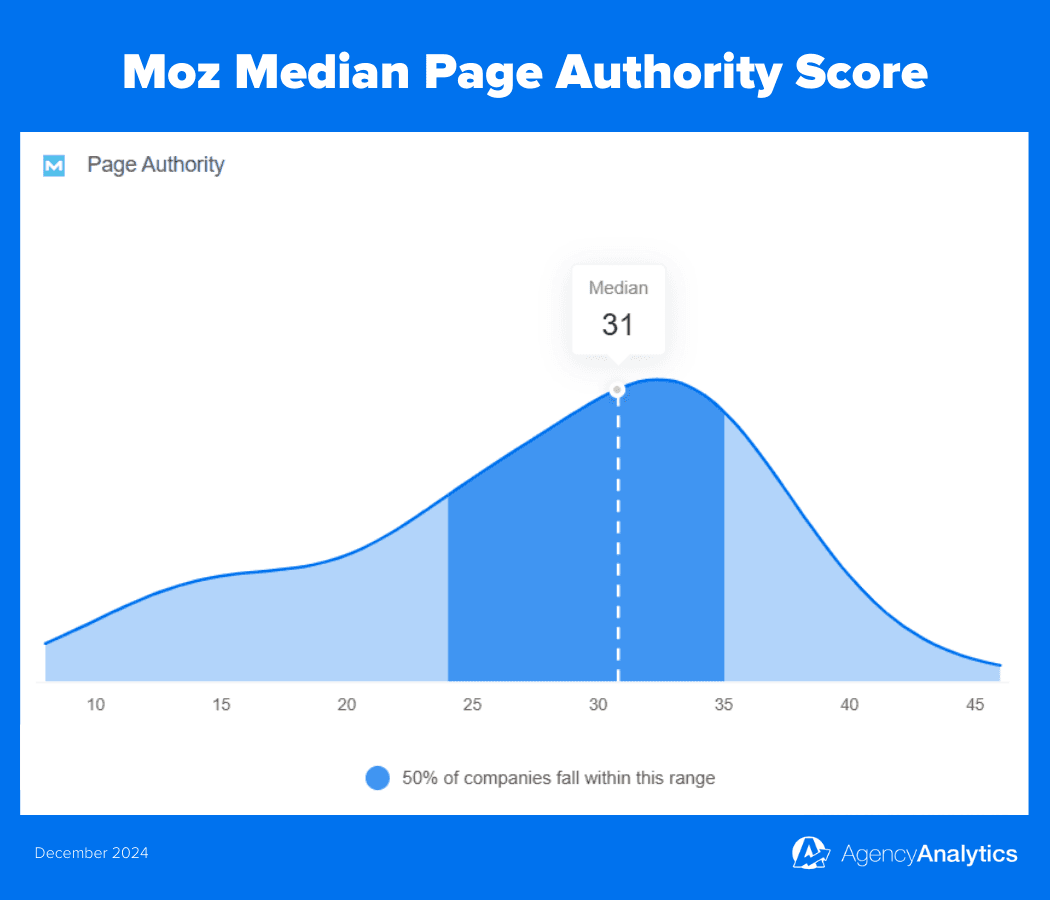
Why Page Authority Matters to Clients
Page Authority score is synonymous with effective and economical marketing. It is an early predictor of a webpage's capability to bring in organic traffic and, by extension, revenue. Clients often view it as a proxy for how well their investment in digital assets performs. Better visibility on search engines is directly tied to customer acquisition and sales.
In the long term, better organic rankings have the potential to reduce advertising spend. When a webpage ranks naturally, the need for paid promotions decreases, offering a more sustainable model for attracting traffic.

Why Page Authority Matters to Agencies
Page Authority is a robust KPI that agencies use to signal the efficacy of their search optimization work. Unlike other fluctuating metrics–like keyword rankings–Page Authority provides a more stable measure primarily influenced by the agency’s efforts. When steadily increasing Page Authority metrics are highlighted in client reports, they testify to the agency's skills and expertise.
Page Authority scores also identify opportunities for continued optimization, including content updates, more backlinks, and–ultimately–better PA scores. This makes Page Authority an invaluable asset for its immediate benefits and a strategic tool for anticipating and driving broader campaign outcomes.

Best Practices for Analyzing and Reporting on Page Authority
Analyzing Page Authority from multiple angles gives agencies the intel needed for efficient keyword and page optimization. This scrutiny brings out the nuance in the data, helping to strategize for increased client success. When reporting Page Authority data to clients, context and clear communication are crucial.
Page Authority History and Growth
Understanding how Page Authority shifts over time reveals the impact of long-term strategies. It's crucial to understand the sustainability of current efforts and adjust plans accordingly.
Tap Into the Power of Visuals
A good visual conveys complex data quickly. Charts, graphs, and color-coded widgets make monthly SEO reports more digestible for clients. Visual elements aren't just for aesthetics; they enable quick decision-making and facilitate a deeper understanding of long-term trends.
Understand PA for Top Converters
High-converting pages are the golden geese you want to pay attention to. A higher authority on these pages impacts conversion and revenue.
Contextualize Page Authority with Other Metrics
While Page Authority is a significant metric, it doesn't exist in isolation. It often moves with KPIs like Domain Authority, Organic Traffic, and Keyword Ranking. Clients usually have a holistic approach to their marketing goals, so it's critical to highlight Page Authority alongside companion metrics to provide a more nuanced picture of campaign health.
Dig Into Page Authority by Content Type
Agencies should also assess Page Authority across different content types, including blog posts or product pages. This offers insights into which content forms contribute most to the page's authority, allowing for more targeted efforts. Eliminating low-authority content also helps increase the domain’s overall authority score.
Mapping Page Authority to Client Goals
Clients don't just want to see a score; they want to understand how that score affects their bottom line. Tie Page Authority to client-specific objectives, whether that's more organic traffic or increased sales. Show clear correlations between improved Page Authority and progress toward these goals to help clients appreciate its role in bigger wins.
FAQs – Page Authority (PA)
Still have questions about Page Authority (PA)? Don’t worry—we’ve got you covered.
Page Authority (PA) measures how likely a specific web page is to rank in search results. It’s scored from 0 to 100 and considers factors like backlinks, content quality, and relevance. Although not a Google ranking signal, PA is a trusted predictor of ranking potential that helps agencies identify which pages hold the most SEO value.
Page Authority is vital because it gauges the competitiveness of a web page. High PA scores usually mean better search visibility and stronger organic performance. Track PA to prove progress, refine SEO strategies, and show clients the measurable impact of their optimization work.
Pages with high authority often rank better for their target keywords, leading to more organic traffic. Conversely, strong keyword performance can raise a page’s authority score. This reciprocal relationship makes Page Authority a valuable KPI for evaluating content and keyword strategies.
Page Authority focuses on individual page strength, while Domain Authority measures the overall ranking power of an entire website. Both metrics work together—improving one tends to lift the other. Monitoring both in AgencyAnalytics provides a complete picture of SEO performance across campaigns.
Clients view Page Authority as an early indicator of return on investment. Higher PA scores usually predict stronger search visibility, lower ad spend, and sustained organic growth. Including this metric in reports helps agencies show clear, data-backed proof of long-term value.
Semrush Dashboard Example
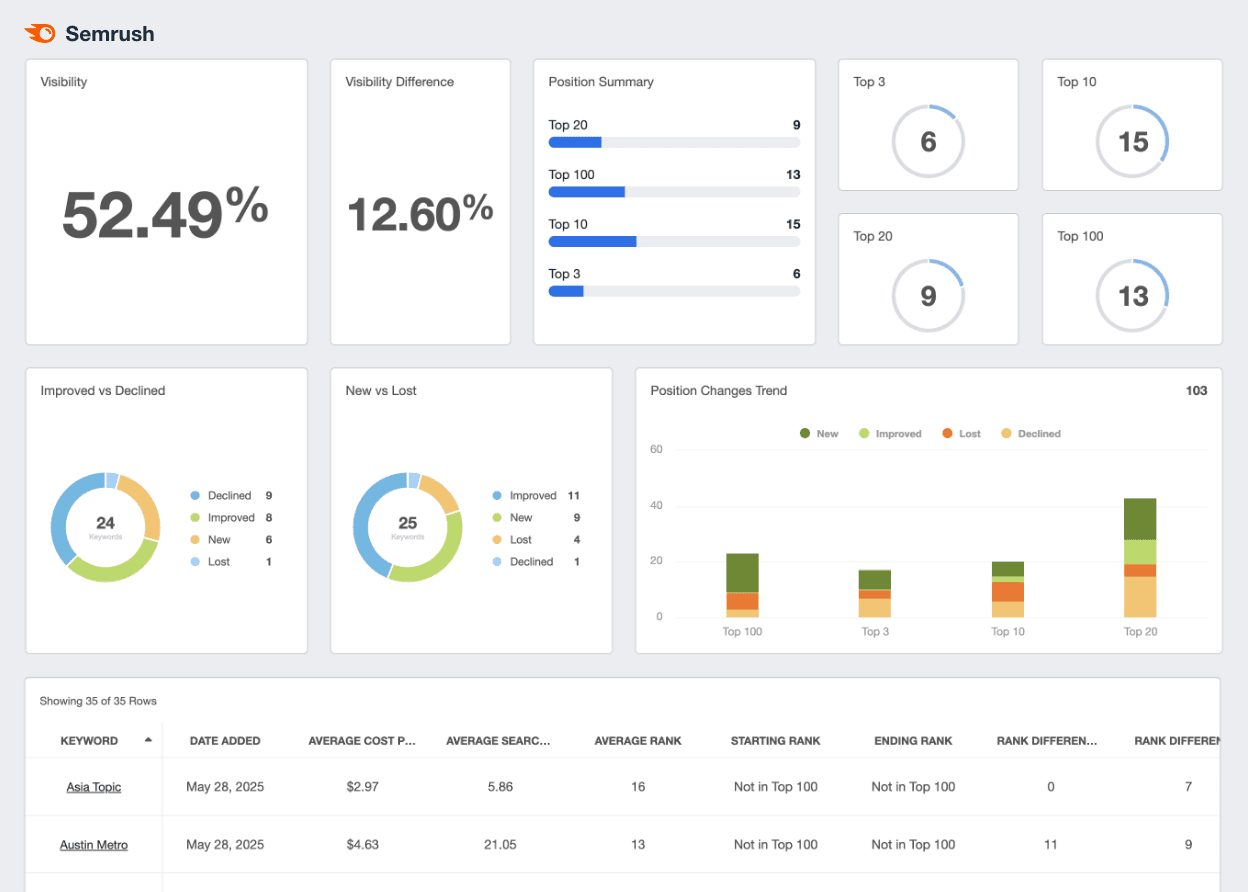
Related Integrations
How To Improve Page Authority
Increasing Page Authority is all about constructing a more impactful and effective online presence. Here are three targeted strategies to improve PA scores.
Secure Quality Links
Building inbound links from high-authority domains gives search engines a reason to trust the page. Prioritize quality over quantity, reaching out to reputable sites for link-building opportunities.
Engage With Content
Creating high-quality content serves the target audience and signals a page's relevance and authority to search engines. Make it informative, compelling, and shareable.
Optimize On-Page Elements
A holistic on-page optimization strategy includes using keywords, meta descriptions, and HTML tags properly. These elements convey the page’s subject matter to search engines, achieving higher scores.
Related Blog Posts
See how 7,000+ marketing agencies help clients win
Free 14-day trial. No credit card required.


